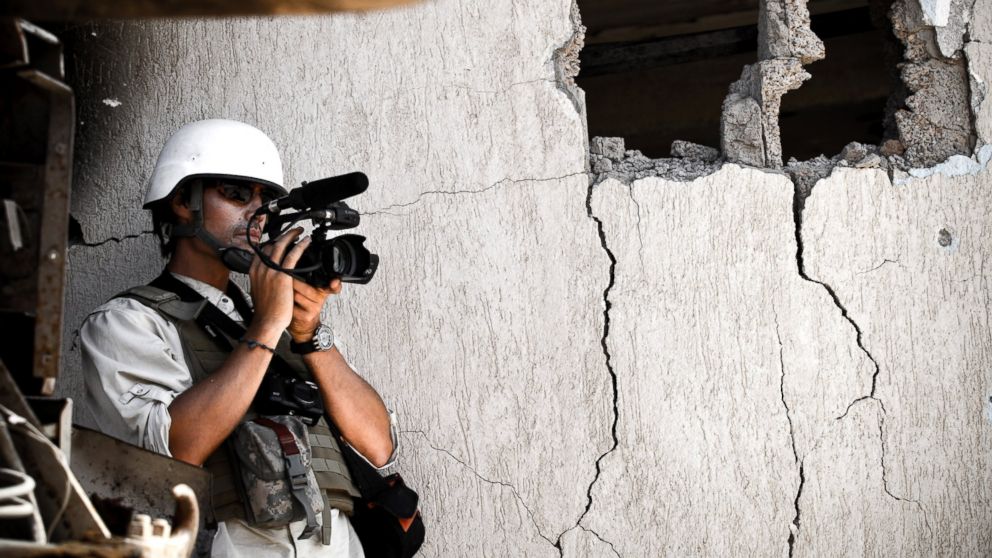Could Money Have Saved James Foley? ISIS 'Wasn’t Serious' About Demands, Officials Say
Fmr official, GlobalPost CEO: ISIS wanted $132 million for journalist’s release.

— -- When James Foley’s mysterious captors finally contacted his family and revealed their demands in exchange for the American journalist’s release, they were so absurd that the group didn’t appear to be serious about actually freeing Foley, according to GlobalPost CEO Phil Balboni and a former U.S. government official.
Foley had been kidnapped while working for GlobalPost in Syria in November 2012, but word from his abductors didn’t come until a year later when his family and news organization received an email “in very serviceable English” demanding 100 million Euros ($132 million), said Balboni.
“We never took that amount seriously,” Balboni told ABC News, who added that from the beginning all information was shared with the FBI. But Balboni said he was never really sure who they were dealing with and “it was impossible to say who was in control during the negotiating process.”
US Military Launched Secret Rescue Op in Syria for James Foley, Other Americans
'Apparent' That James Foley Executioner Is British, Intel Agencies Race to ID Killer
James Foley Punished for Suspected Escape Plans, Fellow Hostage Says
A former U.S. government official with direct knowledge of the American hostages’ cases confirmed the amount – which is tens of millions more than all of al Qaeda reportedly received from all kidnappings last year -- and said the Islamic extremists also demanded the release of high-profile Muslim prisoners in the U.S.
“They were not substantive demands,” the former official said. The group of hostage-takers, who turned out to be from the Islamic State of Iraq and Syria (ISIS), “wasn’t serious about negotiating for money… They knew their demands were unattainable.”
In the past, ISIS -- taking a cue from al Qaeda franchise AQIM in North Africa -- has demanded far less money for European hostages who were eventually released, with the dollar amounts between $2 million and $3 million, current and former officials have told ABC News.
Nicholas Henin, a French journalist who was held alongside Foley for seven months and suffered several mock executions before he was freed in April, said Foley was optimistic about his chances of being freed, even though the United States by policy does not negotiate with terrorists.
“There are two kinds of countries in the world,” Henin said, those like the U.S. and U.K. which do not negotiate with extremists, and those that do. According to a New York Times report in late July, several European governments have been effectively bankrolling a number of terrorist groups by paying high-dollar ransoms for their captured citizens, to the long-simmering frustration of their American and British allies.
“Aside from state-sponsored terrorism, ransom payments are the greatest source of terrorist funding today,” U.S. Treasury Under Secretary David Cohen said in June, noting that al Qaeda-linked terror groups have collected “tens of millions of dollars in ransoms in the last several years.”
Speaker of the House John Boehner said that “knowing the United States does not negotiate with terrorists” is one of the “greatest protections” for Americans working and living abroad. At the time, Boehner was criticizing President Obama for authorizing the exchange of five mid- to high-level Taliban figures for Taliban captive Army Sgt. Bowe Bergdahl in June.
In addition, Kelly Ayotte, a Republican U.S. Senator from Foley’s home state in New Hampshire, told ABC News that ISIS, in particular, could not be trusted anyway.



